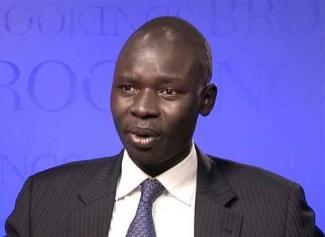The dynamics of civil service reform and demobilisation
-
An oversized public sector constrains efficiency and growth
-
Though challenging, reducing the public sector is an opportunity for a healthier economy
-
Government needs a strategy to reduce and improve its civil service for better growth
-
The study increased awareness of the issue and led to requests for follow-up studies
In South Sudan the public sector is the largest employer and therefore the aggregate wage bill consumes a large portion of government resources. The aggregate wage bill in South Sudan is above average for post-conflict countries with comparable economic development. Maintaining such a bill may well prove unsustainable, as well as crowd out other growth and inhibit dynamism within the economy. Reducing the size of the public sector and increasing efficiency are crucial to providing more and better services and public goods and freeing up labour which together can enable better growth.
This paper reviews existing theory and examined empirical evidence and experience from other countries, which have faced similar problems and undertaken reforms. Broadly, the project explored the key dynamics involved in civil service reform and why and how reform can lead to better growth. It then sought to apply this to South Sudan’s current situation, identify where the largest opportunities are for reform, the most appropriate sequencing, as well as the potential bottle-necks and challenges.
The research identified several avenues for South Sudan to consider in implementing civil service reform. Involuntary redundancy, for example, would retain skills and allow for room to increase wages based on performance, thereby creating an incentive for improved performance. Biometric IDs should be employed to reduce waste and fraud. Donor support should be explored for these, especially involuntary redundancy. While the largest government departments should be targeted, the government should also consider the security sector. There are several challenges with implementation that the government should be aware of, primarily political push-back and how to create buy-in. One option for security sector reform could be demobilisation programmes to keep the government wage bill down while preserving the peace and political cohesion, but managing expectations and creating support will be a substantial challenge.





